Quick Links
The proof?
The top Google result contains an average of 3.8x more high-quality backlinks than positions #2 – #10.
Also, countless experiments and campaigns have proved the effectiveness of acquiring high-authority backlinks for better SERP (search engine results pages) rankings.
If you want to find out if a website has a strong backlink profile, standard practice is to check its domain authority.
What is domain authority (DA)?
It’s a third-party SEO metric first developed by Moz that represents how likely a domain is to appear in the SERPs over its competitors.
It’s a score from 1 – 100, with 100 being the strongest and 1 being the weakest level of authority.
If there’s another website that you just can’t seem to outrank, their stronger link profile is likely the culprit – so don’t forget to check their domain authority.
Domain authority isn’t something that you can improve overnight, but airtight on-page SEO practices and a winning link-building strategy will both help you improve your DA score.
While your SEO strategy shouldn’t revolve around building domain authority, it is a reliable metric for judging the strength of your backlink profile.
Stay tuned to learn more about domain authority as well as effective tactics for improving your DA score.
What is Domain Authority?
As a concept, domain authority has been around since 1999 when it was mentioned in a paper by John Kleinberg called Authoritative Sources in a Hyperlinked Environment.
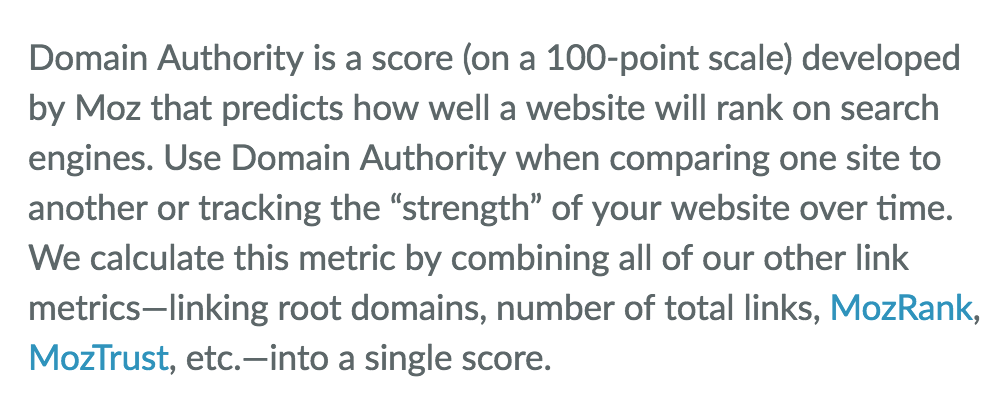
In it, Kleinberg asserts that search engines have an ‘abundance’ problem – where all the relevant results that could be returned for a query are too large for a human to digest.
Therefore, search engines need a way to filter the results so that only the most ‘authoritative’ or ‘definitive’ results remain.
That’s why the top-ranking results on Google are always the most trusted, highest-quality websites.
Moz’s domain authority score
Moz, an SEO software company, took this concept to the next level by officially inventing the domain authority metric – which looks at many factors to determine how likely a domain is to rank high on the SERPs.
Which factors does DA look at?
The most important ones are linking root domains and a website’s total number of links. In other words, the DA score primarily judges the strength of your link profile – which definitely matters for SERP rankings.
In addition to these factors, Moz also uses a machine learning algorithm that predicts how often Google will use a domain in its SERPs. If domain A is determined to appear more in the SERPs than domain B, then it will have a higher domain authority score.
Because DA score uses machine learning algorithm calculations based on constantly changing data points relative to every website, it’s normal for DA scores to fluctuate.
For example, if Wikipedia were to acquire 100,000 new backlinks, everyone else’s DA score would drop as a result.
Not only that, but established domains like Wikipedia, Amazon, and Facebook have such massive link profiles that they tend to occupy the higher DA score slots (think of scores 80 to 100).
As a result, most small-to-medium-sized websites have DA scores that range from 10 – 60 on average.
Also, it’ll be easier to raise your DA score from 20 to 30 than it is from 60 to 70. For this reason, Moz suggests that you use DA scores as comparative metrics to determine how you size up to other sites around the same level of notoriety as yours.
Is Domain Authority an Official Google Ranking Factor?
Speaking of using domain authority strictly as a comparative metric, it’s not an official Google ranking factor – and Moz will be the first to tell you this.
To directly quote their website, “Domain authority is NOT an official Google ranking factor and has no effect on the SERPs.”
Google’s John Mueller has also stated continuously that Google’s algorithms do not use domain authority as a metric when ranking websites.
Since it’s not an official ranking factor, why even pay attention to your domain authority?
While Google’s ranking algorithms don’t use Moz’s exact domain authority formula, it’s no secret that things like backlinks, referring domains, search traffic, and user experience ARE Google ranking factors, and they’re what comprise domain authority calculations.
As such, domain authority is a useful metric for comparing your site health and SEO-friendliness to your direct competitors – regardless of the fact that it’s not directly measured by Google.
How to use domain authority
As an example, let’s say that your eCommerce store has a DA score of 50, and you’re only able to rank in position #2 for your target keyword.
After doing a little digging, you uncover that the website outranking you has a DA score of 58.
This is a strong indication that they have superior site health and a stronger backlink profile than you – which is why they’re currently outperforming you.
The good news is you can closely analyze their website and backlink profile to discover what they’re doing that you aren’t (more on this in a bit).
To summarize, digital marketers still pay attention to domain authority because it’s a quick and easy way to gauge the overall SEO-friendliness of a website. You can think of your DA as the overall grade representing the strength of your SEO stats (i.e., organic traffic, referring domains, etc.).
What’s Page Authority?
SEO is about more than getting your homepage to rank; it’s also about snagging the #1 position for content centered around keywords important to your target audience.
As such, you need a way to determine not only the ranking strength of your overall domain but also of each individual web page.
After all, it could be that you have a decent DA, but the authority of your most crucial product pages & blogs is less than optimal.
Enter page authority (PA), a metric that lets you judge the ranking strength of any page on your website.
Much like domain authority, it’s not an official Google ranking factor but instead serves as a score grading a page’s overall probability of ranking in a top spot.
Important note: While page authority looks at crucial factors like the total number of links – it does NOT take into consideration on-page SEO elements like keyword use or content optimization. That means you should only view a web page’s authority to gauge the strength of its backlink profile and ranking probability.
To evaluate your on-page SEO, use our free SEO Audit Tool instead. Not only will it let you know a website’s domain authority, but it also judges crucial metrics like keyword usage and user experience.
How Can You Check Domain Authority?
If you want to check your DA or a competitor’s DA score, there are many ways to do so.
While Moz’s domain authority was the OG, plenty of other SEO companies have developed their own authority metrics in the years since, including:
- Ahrefs uses two metrics, Domain Rating (DR) and Ahrefs Rank (AR). Domain Rating is a comparative metric (like Moz’s DA) that compares the strength of a website’s backlink profile to others in Ahrefs’ database. AR ranks the websites in Ahrefs’ database according to the size and quality of their backlinks.
- SEMrush uses an Authority Score that measures the overall quality and performance of a domain or individual webpage. It’s less of a comparative metric and more of a straightforward gauge of your SEO-friendliness.
- Majestic’s Flow Metric Scores measure content quality and a website’s total number of links.
As you can see, each of these domain authority scores is a bit different.
Ahrefs is useful because you get both a comparative metric and a more straightforward one, whereas SEMrush is more about judging the quality of your SEO strategy.
In addition to these tools, our free SEO Checker Tool will provide an overview of an entire website or specific web page (including both DA and PA).
Techniques for Building Domain Authority
If your DA and PA scores are falling behind your competitors, it’s time to start building them both back up.
How do you do that?
Here’s a look at the most effective techniques for boosting your domain authority.
Guest posting
If you want your DA score to rise, then acquiring high-authority backlinks is key – and guest posts are still one of the best ways to get them.
Guest posting involves finding relevant websites in your niche that accept guest posts and then reaching out to them with an article pitch.
If you want a snowball’s chance of securing a guest blog, then your pitch needs to provide real value to the website’s target audience. Don’t try to regurgitate one of your existing blogs, as you’ll need to create something brand-new for it to work.
When looking for websites that accept guest posts in your field, Google Search Operators are your best friend.
In particular, this formula works wonders:
Your niche keyword “guest post.”
If you’re in accounting, then the search operators you could use include:
- Accounting “guest post”
- Accounting “write for us”
- Accounting “guest poster wanted”
- Accounting “This post was contributed by.”
Besides using Google, you can also check out our extensive list of vetted guest post websites in need of fresh content.
The best part about our list is that all the websites were self-submitted, meaning they’re actively seeking guest posters.
Once you have a list of websites to target, then the hard part comes. You need to come up with an original blog post that will add value to your audience. The good news is that they’re in the same industry as you, so it shouldn’t be too difficult.
Analyze competitor websites & backlink profiles
An excellent way to uncover viable backlink opportunities is to take a peek at the link profiles of your top competitors.
You can use our free Backlink Checker Tool to view the backlink profile of any website on the internet (including yours).
When examining a competitor’s link profile, keep an eye out for the following things:
- Do you notice any guest posts?
- Are they listed in any directories that you aren’t?
- Do any ‘top 10 lists’ mention their products?
Also, just keep an eye out for any websites that you think might want to link to your website as well.
Analyzing your competitors can provide invaluable insights into how to outrank them.
In addition to looking for backlinks you can poach, you can also look for any glaring weaknesses in their content.
For example, let’s say you pull up a competitor’s top-ranked blog posts and put them under a microscope.
You notice that they don’t explore the topic as fully as you can and that some of their information is false.
That prompts you to create an even more in-depth blog on the same topic containing accurate, up-to-date information – boosting your reputation and SERP rankings as a result.
Ensure optimal site performance
The strength of your backlink profile isn’t the only factor determining your domain authority score.
You also need to ensure that your website features a pleasant user experience.
What does that entail?
If you want to rank on Google, then your website needs to pass the Core Web Vitals test. It judges your website’s loading speed, including how long it takes for users to start interacting with your website.
If your page loads poorly, you’ll fail the test and won’t be able to rank.
To find out if your loading times are up to snuff, you can use Google’s PageSpeed Insights.
Mobile responsiveness is another necessity for modern websites, and Google has used mobile-first indexing since 2017.
That means you’ll need a responsive website design to rank on the SERPs. Luckily, Google has another free tool to check your mobile friendliness, the Google Mobile-Friendly Test.
Final Takeaways: What is Domain Authority?
While domain authority and page authority aren’t official metrics that Google measures, they’re both one of the most reliable ways to judge the ranking power of a website or web page.
If your domain authority is lacking, then you need to improve your site’s performance and acquire more high-quality backlinks.
Do you need help improving the domain authority for your website?
Then don’t wait to check out our Link Outreach and Link Insertion Services from The HOTH. Our link-building gurus have built stellar link profiles for countless clients, so don’t wait to get in touch.



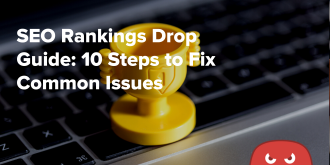


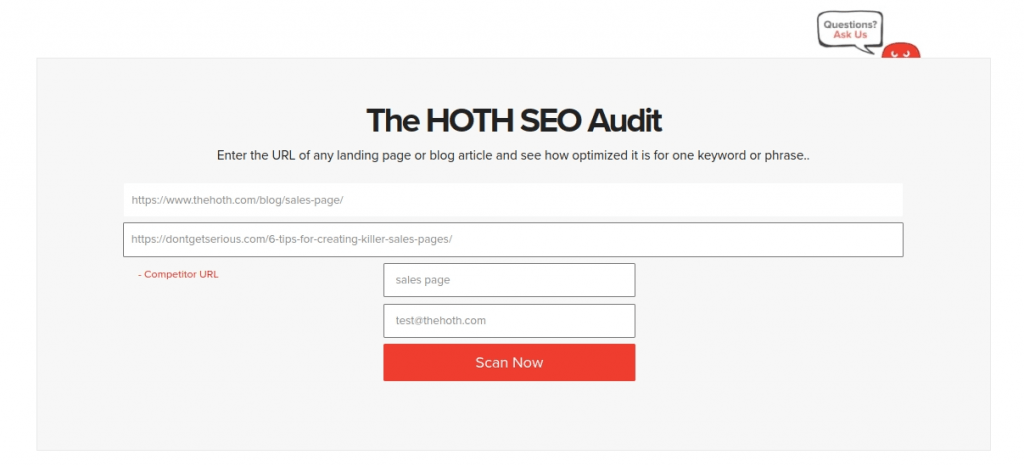
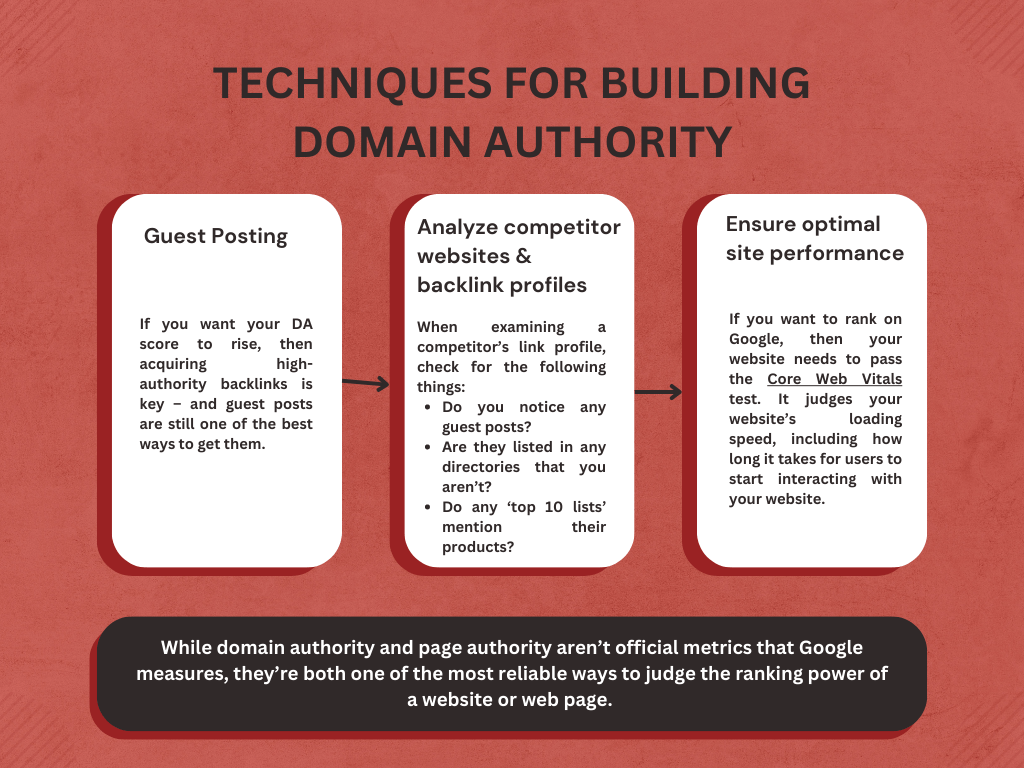

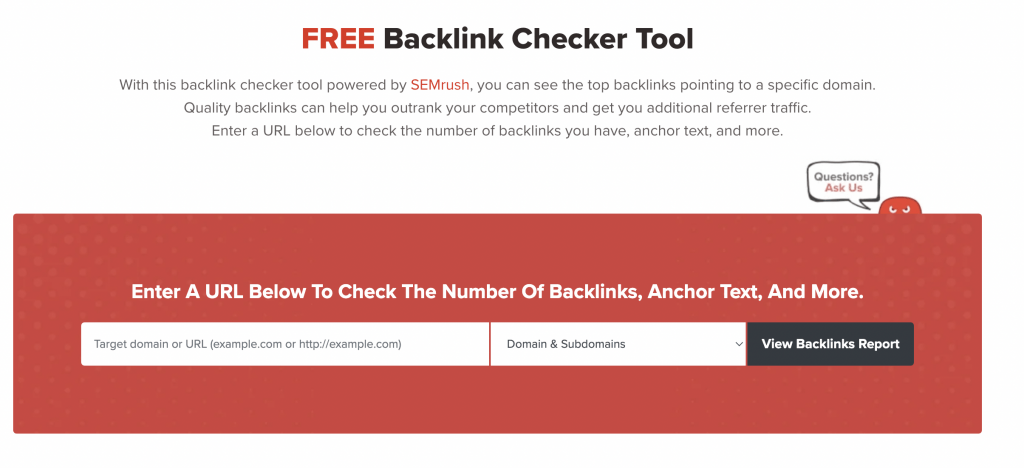
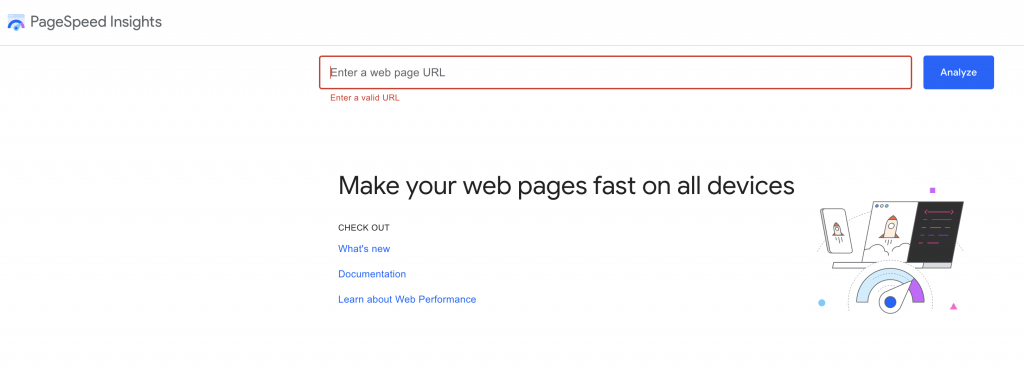


The most complete thing I read about domain authority
Glad you thought so, thanks!
Thanks for this valuable information and hope to see these types of information.
Regards.
I couldn’t agree more with seouser. This is an easy to understand and in-depth tutorial! Waow.
Awesome, thanks Eric 🙂
Valuable content.
Thanks for the information. Keep it up guys.
You’re welcome, cheers!
Awesome thanks
Nice Article. Do backlinks Increase domain authority as we see nowadays so-called Digital Marketers just focus on backlinks without seeing whether the links are dead or not? They just blindly waste their time and money into building links. What’s is your opinion?
Backlink quality is important. You need to check out the backlinks you’re acquiring to make sure they’re good and if so it can definitely help increase your domain authority.
Awesome article. Learning these knowledge of back-links i have done well in my clients website. Thanks for awesome post..hope I’m wondering again good article.
Thanks!
Great write up. I appreciate that you illustrate the difference between PR and DA. Another thing that I think you captured well is the necessity to explain that DA was developed by Moz. I find that even people who work in the industry don’t realize where DA comes from, they sometimes assume that this scoring comes directly from Google.
When comparing Ahrefs and Moz’s page and domain metrics do you see a clear winner? I keep tabs on both to add a bit of redundancy to my metrics (in case one doesn’t predict a big problem).
I think you’ve got it, keep tabs on both since they’re both pretty reliable. Both Ahrefs and Moz have huge link indexes that are very good, so it can’t hurt to look at both Moz DA and Ahrefs DR.
Very useful information about backlinks and DA.
Very regards.
Good to know we aren’t the only ones keeping tabs on a multitude of authority metrics! Typically they show some correlation but for now we don’t see a clear winner between PR/DA & Domain Rating/URL Rating.
Thanks for the article. Does The HOTH offer a domain authority improvement service?
Hi Gregg, we actually have multiple services that can help improve domain authority but aren’t referred to as “domain authority improvement” services by name:
Our main Link Building Service, our Guest Post service, and of course our managed SEO service HOTH X all involve work with the goal of increasing your domain’s authority. You can always reach out to us with further questions here.
Superb idea Sir.
Very very regards.
Hey Thanks a lot for sharing this information it will really help me improve my website domain authority.If anyone help to increase my website domain authority of my below website- https://www.limratechnosys.com/
What are the best ways to increase/improve domain authority for new websites and new blogger’s blogs? Will guest posting will help me increasing Domain authority? If yes then how to add value?
You can increase Domain Authority for new websites by Step 1: Publishing great, value-driven content on it. And Step 2: Doing direct outreach to other sites to get links to that content. To provide value, you should both think about and research what your niche’s audience cares about: what questions are they asking, what problems do they have that they need solved (by your content)? Guest posts are definitely one way to do it, but you can also build links by getting your content or site listed on resource pages, broken links, unlinked mentions, and a variety of other link building methods we cover in this article about SEO for brands and this one about backlinks.
thank you for your valuable article.
Hello “Hoth” such a great article on Domain Authority of the Website
that was really informative
thanks for sharing
Hey,
Domain authority is based on a lot of factors. Primarily, however, these are link profile factors such as how many backward links are pointing to your website and how authoritative those sites are.
It is very difficult to gain a DA number of 100. Sites like Facebook and Google have it, so don’t be disappointed if you never hit 100.
DA is difficult to influence directly. You can’t change your DA score like you can change your meta tags.
Check out the different benefits of SEO for the growth of your business.
· SEO helps to increase quality traffic to your company website
· The traffic generated by SEO is more likely to convert
· SEO increases your sales and leads
· It can reduce your cost per acquisition
· SEO does not include any paid advertising
Nice and important article. I hope to see more useful information about this.
Best regards.
Valuable information. It is the most important part in our ranking process.
Very very regards.
Awesome and helpful information and hope to see more these types of things.
Very regards.
very nice post i shared with freinds
Great article Glen!
Indeed there are many profitable niches out there waiting for curious minds to dominate them.
It is amazing how we cannot exhaust the available niches. Everyone has a chance. And for those who fail to succeed, it is because of their own foolishness.
Great work combining these statistics!
Thank you for valuable information.
Thanks for this detailed guide on Domain Authority! It offers valuable insights and practical tips for improving website rankings. The emphasis on actionable steps like guest posting is appreciated. A must-read for digital marketers!